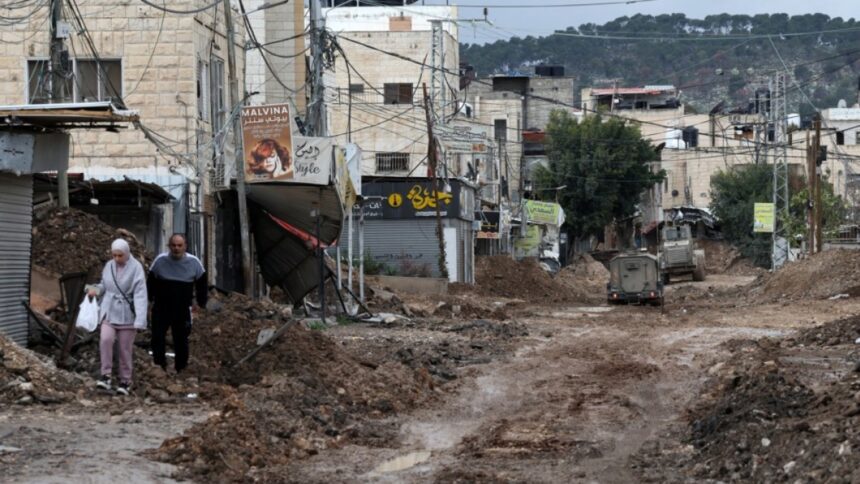The United Nations agency for Palestinian refugees (UNRWA) has expressed deep concern over the escalating forced displacement of Palestinians in the northern region of the occupied West Bank, with the number of evacuees reaching 40,000 since January.
UNRWA issued the warning as Israeli forces continued their extensive raids on Tuesday, entering Jenin and arresting three individuals, as well as demolishing over a dozen homes in two areas near Hebron.
Since the beginning of an Israeli operation on January 21, specifically targeting the Jenin refugee camp and its surrounding city, the raids have spread to other parts of the occupied territory, as stated by UNRWA.
The agency revealed that several refugee camps, including Jenin, Tulkarem, Nur Shams and Far’a, have been “almost completely emptied of their inhabitants”, with the nearly three-week military operation being described as “the longest in the West Bank” since the second Intifada.
UNRWA reported that the four camps were home to approximately 76,600 Palestinian refugees collectively.
UNRWA also highlighted that the “repeated and destructive operations” conducted by Israeli forces have made the northern refugee camps uninhabitable, resulting in residents being constantly displaced.
“In 2024, over 60 percent of displacement was caused by Israeli forces’ actions, without any legal orders,” it added.
So far in 2025, UNRWA stated that Israel has carried out 38 air raids targeting the West Bank.
According to the Armed Conflict Location and Event Data (ACLED), a crisis monitoring group based in the US, the operation in the West Bank has led to the deaths of nearly 70 individuals, with at least 44 of those fatalities being linked to Israeli operations in Jenin, Tulkarem, and Tubas, figures supported by the Palestinian Ministry of Health.
UNRWA reiterated its call for Israelis to safeguard civilians and civilian infrastructure “at all times”, emphasizing that “collective punishment is never justified”.
UNRWA also noted that since January 30, the agency has been cut off from all contact with Israeli authorities due to a ban, making it impossible to address concerns about civilian suffering in the Palestinian territory.
“This puts the lives of Palestine refugees and UNRWA staff who serve them at serious risk,” the agency stated.










